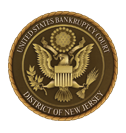What is a discharge and how do I receive my discharge?
A discharge releases a debtor from personal liability for certain debts known as dischargeable debts and prevents the creditors owed those debts from taking any action against you or your property to collect the debts. The discharge also prohibits creditors from communicating with you regarding the debt, including telephone calls, letters, and personal contact.
When all plan payments have been made, a Chapter 13 debtor is eligible for a discharge, as long as you:
- file a Certifiation in Support of Discharge indicating whether you owe domestic support obligations, and if so, if they your payments are paid up to date.
- have not received a discharge in a Chapter 7, 11 or 12 case during the four years preceding the new case
- have completed the Personal Financial Management course (Debtor Education) and filed a Certification About a Financial Management Course (Bankruptcy Form B423).
Creditors provided for in the Chapter 13 Plan may no longer initiate or continue any action against you to collect debts that have been discharged. However, there are exceptions to the discharge which include:
- debts for alimony and child support
- most student loans
- debts arising from death or personal injury caused by driving while intoxicated or under the influence of drugs
- debts for criminal fines or restitution.
NOTE: Once a debt is discharged, you are legally free of that debt. The discharge is a permanent order that prohibits creditors from taking any type of collection action on discharged debts. Any attempt to collect discharged debt is prohibited by bankruptcy law. For your own protection, you should maintain accurate records and copies of all matters related to your bankruptcy. In addition, you should routinely check your credit report with the various reporting agencies to ensure that discharged debts are not being reported as outstanding.

